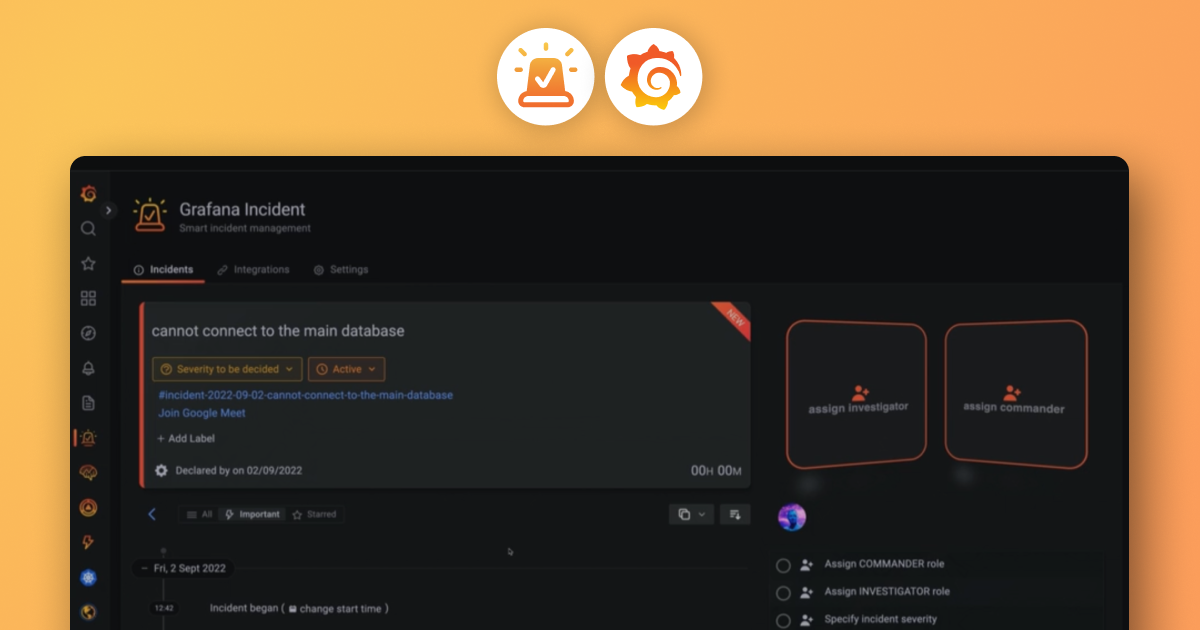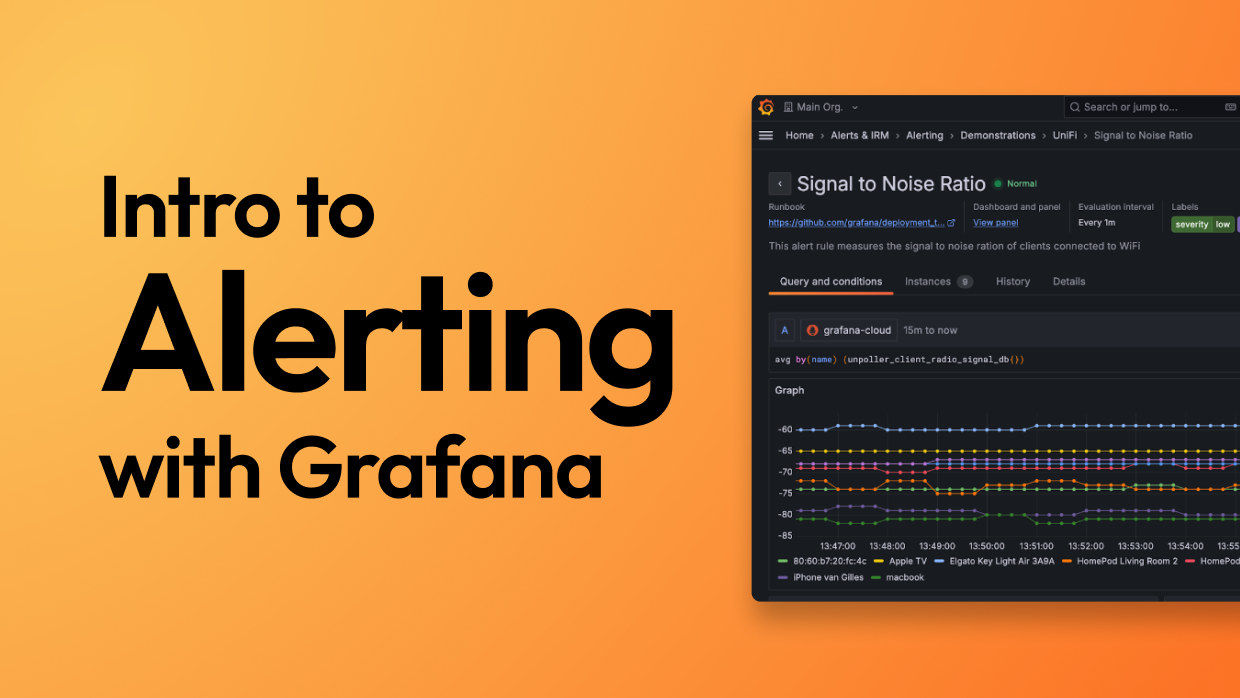Plugins 〉Range Slider Panel
Range Slider Panel
Range Slider Panel Plugin for Grafana
Description
The Range Slider Panel Plugin is an interactive slider component for Grafana that allows users to dynamically select a range of values to filter dashboard data. It's especially useful for creating more interactive and user-friendly dashboards. This plugin can be adapted to various data sources and supports customizing range formats, making it ideal for use with both SQL and NoSQL databases.
Features
- Dynamic range selection for filtering dashboard data.
- Customizable range formats, including the ability to change the delimiter and range syntax (e.g., brackets).
- Easy-to-use slider interface with configurable default minimum and maximum values.
- Compatibility with various data sources, including Elasticsearch, SQL, and NoSQL databases.
Installation
To install the Range Slider Panel Plugin, follow these steps:
- Download the zip file of the plugin.
- Unzip the file into your Grafana's plugin directory (default is
/var/lib/grafana/plugins). - Restart the Grafana server.
- Go to Grafana Dashboard, and you should now be able to add the Range Slider Panel to your dashboards.
Usage
After installation, you can add the Range Slider Panel to any dashboard:
Edit your dashboard.
Add a new panel and select the Range Slider Panel from the visualization options.
In the panel settings, configure the following options:
Variable Name: Select the textbox type variable that will be controlled by the slider.Variable Label: Variable label that is shown on the panelMinimum Threshold: Lower threshold for the variableMaximum Threshold: Upper threshold for the variableRange Prefix: Define a prefix for the range (e.g., '[').Range Suffix: Define a suffix for the range (e.g., ']').Range Delimiter: Specify a delimiter for the range (e.g., 'TO').
Use the slider to select the range and filter your dashboard data accordingly.
License
This plugin is released under the Apache 2.0 License.
Author
Anyline GmbH
Grafana Cloud Free
- Free tier: Limited to 3 users
- Paid plans: $55 / user / month above included usage
- Access to all Enterprise Plugins
- Fully managed service (not available to self-manage)
Self-hosted Grafana Enterprise
- Access to all Enterprise plugins
- All Grafana Enterprise features
- Self-manage on your own infrastructure
Grafana Cloud Free
- Free tier: Limited to 3 users
- Paid plans: $55 / user / month above included usage
- Access to all Enterprise Plugins
- Fully managed service (not available to self-manage)
Self-hosted Grafana Enterprise
- Access to all Enterprise plugins
- All Grafana Enterprise features
- Self-manage on your own infrastructure
Grafana Cloud Free
- Free tier: Limited to 3 users
- Paid plans: $55 / user / month above included usage
- Access to all Enterprise Plugins
- Fully managed service (not available to self-manage)
Self-hosted Grafana Enterprise
- Access to all Enterprise plugins
- All Grafana Enterprise features
- Self-manage on your own infrastructure
Grafana Cloud Free
- Free tier: Limited to 3 users
- Paid plans: $55 / user / month above included usage
- Access to all Enterprise Plugins
- Fully managed service (not available to self-manage)
Self-hosted Grafana Enterprise
- Access to all Enterprise plugins
- All Grafana Enterprise features
- Self-manage on your own infrastructure
Grafana Cloud Free
- Free tier: Limited to 3 users
- Paid plans: $55 / user / month above included usage
- Access to all Enterprise Plugins
- Fully managed service (not available to self-manage)
Self-hosted Grafana Enterprise
- Access to all Enterprise plugins
- All Grafana Enterprise features
- Self-manage on your own infrastructure
Installing Range Slider Panel on Grafana Cloud:
Installing plugins on a Grafana Cloud instance is a one-click install; same with updates. Cool, right?
Note that it could take up to 1 minute to see the plugin show up in your Grafana.
Installing plugins on a Grafana Cloud instance is a one-click install; same with updates. Cool, right?
Note that it could take up to 1 minute to see the plugin show up in your Grafana.
Installing plugins on a Grafana Cloud instance is a one-click install; same with updates. Cool, right?
Note that it could take up to 1 minute to see the plugin show up in your Grafana.
Installing plugins on a Grafana Cloud instance is a one-click install; same with updates. Cool, right?
Note that it could take up to 1 minute to see the plugin show up in your Grafana.
Installing plugins on a Grafana Cloud instance is a one-click install; same with updates. Cool, right?
Note that it could take up to 1 minute to see the plugin show up in your Grafana.
Installing plugins on a Grafana Cloud instance is a one-click install; same with updates. Cool, right?
Note that it could take up to 1 minute to see the plugin show up in your Grafana.
Installing plugins on a Grafana Cloud instance is a one-click install; same with updates. Cool, right?
Note that it could take up to 1 minute to see the plugin show up in your Grafana.
For more information, visit the docs on plugin installation.
Installing on a local Grafana:
For local instances, plugins are installed and updated via a simple CLI command. Plugins are not updated automatically, however you will be notified when updates are available right within your Grafana.
1. Install the Panel
Use the grafana-cli tool to install Range Slider Panel from the commandline:
grafana-cli plugins install The plugin will be installed into your grafana plugins directory; the default is /var/lib/grafana/plugins. More information on the cli tool.
Alternatively, you can manually download the .zip file for your architecture below and unpack it into your grafana plugins directory.
Alternatively, you can manually download the .zip file and unpack it into your grafana plugins directory.
2. Add the Panel to a Dashboard
Installed panels are available immediately in the Dashboards section in your Grafana main menu, and can be added like any other core panel in Grafana.
To see a list of installed panels, click the Plugins item in the main menu. Both core panels and installed panels will appear.
Changelog
All notable changes to the "Range Slider Panel" plugin will be documented in this file.
The format is based on Keep a Changelog, and this project adheres to Semantic Versioning.
[1.2.9] - 2024-12-04
- fix: use useMemo to listen to change in min and max values of selected variable and avoid repeated state changes on component mount
- fix: variable flickers when changing value from right sidebar panel
[1.2.7] - 2024-09-26
- Use debounce to retrieve selected textbox variable's value
[1.2.6] - 2024-09-08
- Update docker-compose to docker compose to fix Github CI
[1.2.5] - 2024-09-08
- Update license to include text Copyright 2023 Anyline GmbH
[1.2.4] - 2024-09-08
- Use custom range slider
[1.2.3] - 2024-07-17
- Update error messages
[1.2.2] - 2024-07-16
- Handle negative values for minimum and maximum thresholds
[1.2.1] - 2024-07-16
- Fix panel crashing when max value is less than min value
- Add test case to find min and max values
[1.1.12] - 2024-04-29
- Fix panel crashing when selected variable value is undefined
- Fix plugin chosing "TO" as default delimiter, when delimiter field is empty
[1.1.11] - 2024-02-12
- Add sign plugin step in github workflow
[1.1.1] - 2024-01-23
- Fix min and max threshold not being displayed
- Add screenshot to plugin.json
[1.1.0] - 2024-01-23
- Allow only variables of type
textboxto be selected - Remove default min and max values and use the values from the current variable value
- Fix the bug where setting min and max values above the threshold crashed the panel
- Add
delimiterSpacevariable to allow adding/removing space before and after the delimeter
[1.0.1] - 2024-01-18
- Add default prefix, delimiter and suffix if it is not defined
- Allow select of variable from options
[1.0.0] - 2024-01-08
- Initial release of the Range Slider Panel plugin.
- Dynamic range slider for selecting value ranges.
- Customizable range delimiter, prefix, and suffix for different query languages.
- Options for setting default minimum and maximum values of the slider.




